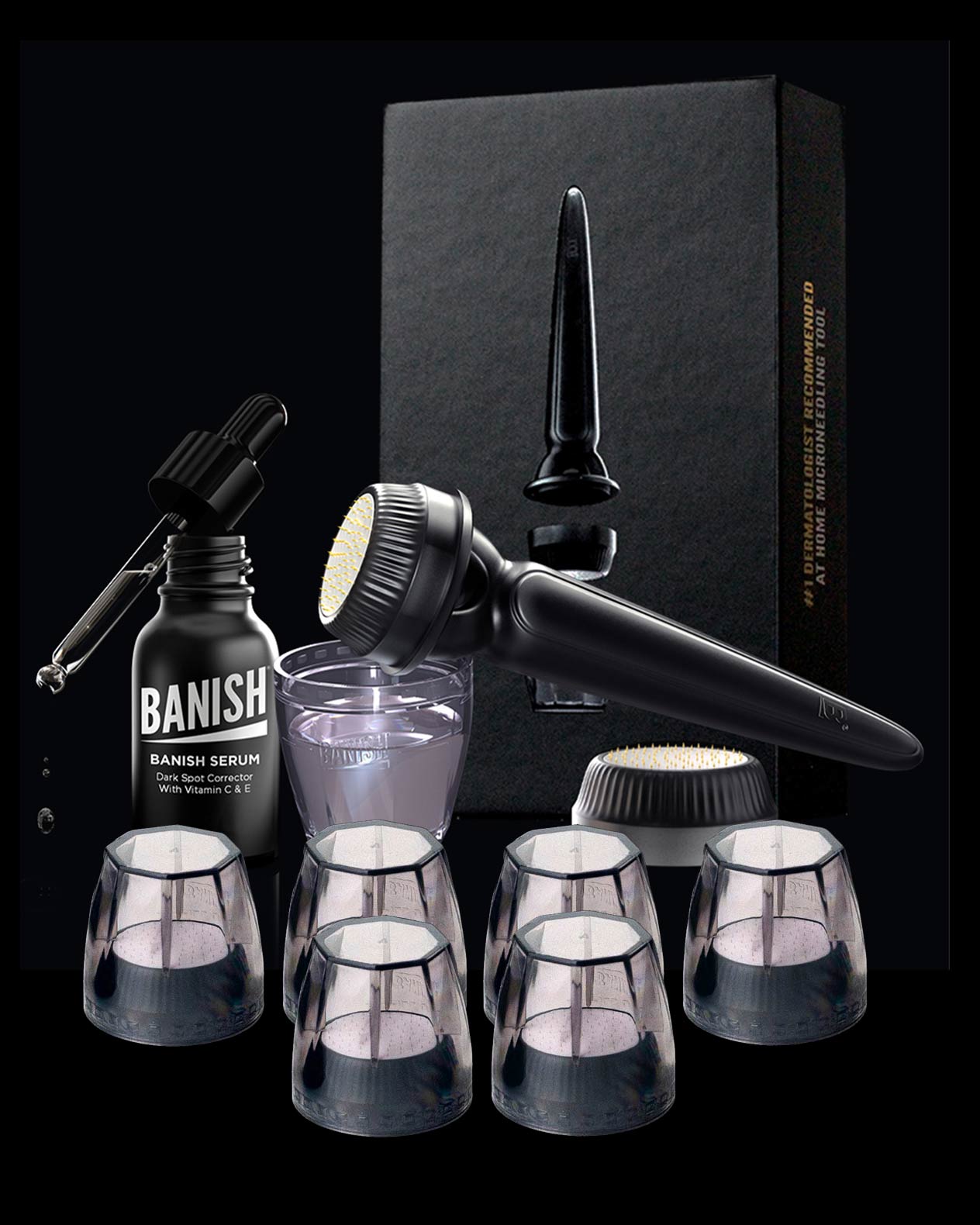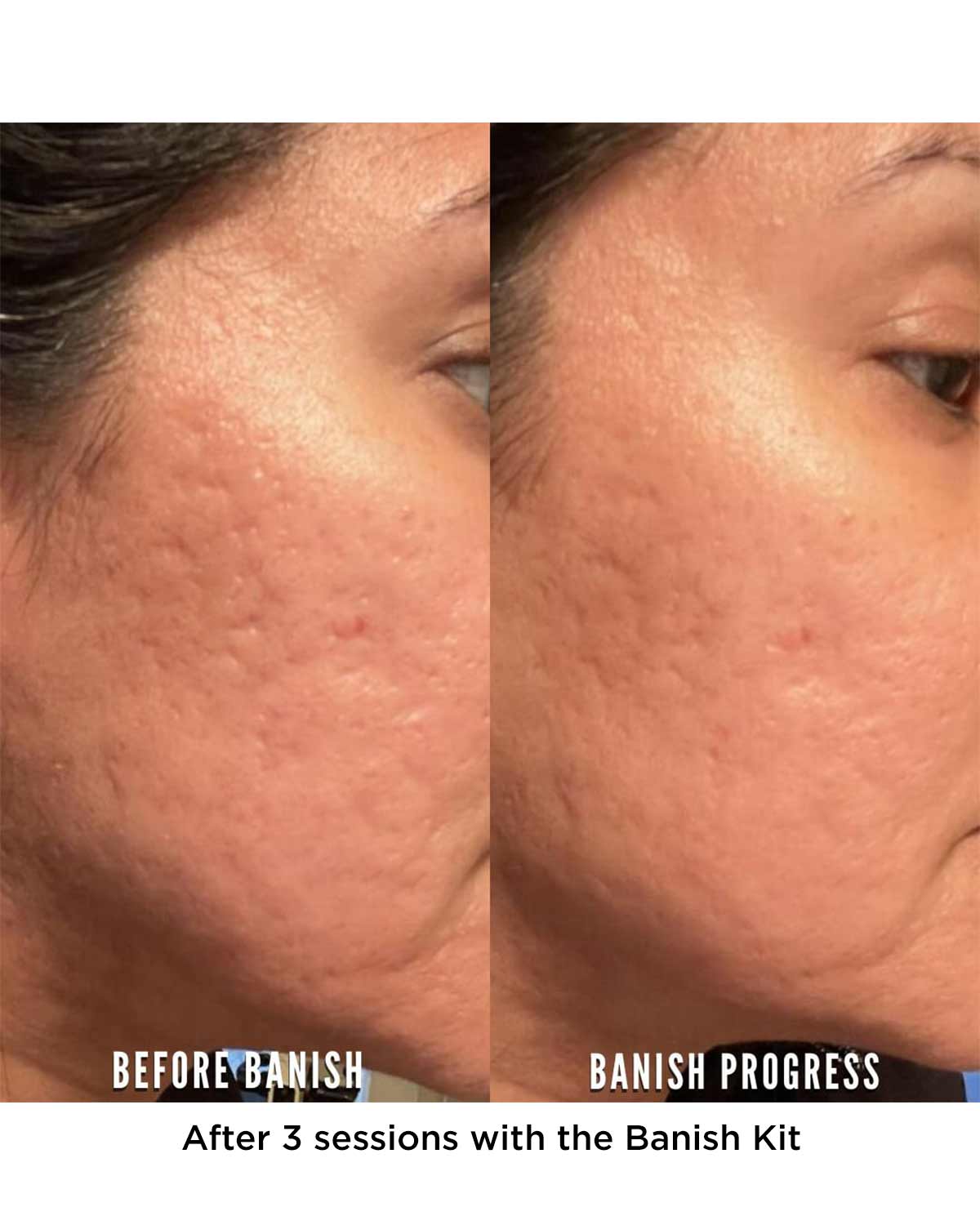We know probiotics as the live bacteria and yeasts that live in our guts and work to keep us healthy. You may recall that some skin issues may even just be the symptom of an underlying gut issue.
Probiotics have been shown to exert their effects on the gut microbiome and to reduce inflammatory markers and insulin levels, which may help with acne.
Although there is still a need for stronger research demonstrating that probiotics can reduce acne, probiotics still have the potential to promote overall better health. Experts agree that most healthy people can take probiotics safely, which means they have some promising potential as a natural acne treatment. However, when choosing the best probiotic supplement there are some things to know.
choosing the best probiotic supplement
How is it packaged?
Look for thick, opaque packaging that will keep out the light.
How is it kept and stored?
How the live probiotics are preserved – refrigeration, freeze-dried capsules, etc. – matters. New technology means good probiotics don’t necessarily have to be refrigerated but be sure to look for whether they use time-release tablets. A good probiotic should explain that they guarantee their live bacteria.
Does it have an expiry date?
Look for an expiration date. If it doesn’t have one, don’t buy it. Without an expiry date, it’s impossible to know how long the bacteria are expected to last.
What are the CFUs and strains?
CFUs (colony forming units) are usually in the billions, however, more isn’t necessarily better. Probiotics with a high amount of one strain may not be as beneficial as a probiotic with several strains and lower CFUs. In fact, you should look for a probiotic supplement with several strains, and a good brand should specify the strains.
If you can, go with a brand you trust and look for a money-back guarantee.
picking strains
We know that diversity is important, so choosing a probiotic with a variety of strains will provide the most benefit. However, are there certain strains that may be especially useful for acne and other skin conditions? It seems there may be!
B. Breve was found to help prevent sun damage from UV exposure. Since the breakdown of the skin from photoaging results in skin looking less plump, hydrated and youthful, this particular strain may help to keep your acneic skin healthy and young.
L. Acidophilus is touted as the best strain for acne (as well as vaginal health and diarrhea, apparently).
A study found that 80% of (300) acne patients experienced a clinical improvement in their inflammatory acne when taking a mixture of L. Acidophilus and L. Bulgaricus. A subsequent study found that L. Acidophilus and B. Bifidum mixtures were better tolerated, with better results.
Thankfully L. Acidophilus is widely recognized as useful and has been used in the medical field for decades.
L. Casei was studied in a randomized, double-blind, placebo-controlled pilot study which found that supplementation led to a decrease in symptoms of anxiety and depression. Increasing this bacteria in your body may help to alleviate stress-induced acne.
L. Plantarum is recommended as an anti-inflammatory for people with IBS, which may also make it a beneficial strain for anyone who also has acne that is especially triggered by inflammation.
L. Rhamnosus has been posited as a beneficial strain for preventing eczema. Pregnant women who supplemented with it around the time of childbirth had children who were half as likely to develop eczema by age 4.
S. Thermophilus was found to improve the level of ceramides in the skin’s barrier, protecting the skin from infection, dehydration, and damage. They also help fight free radicals that can damage the skin.
There may or may not be an ultimate “acne strain” – we’ve only just grazed the surface of understanding the complexities of human gut microbiomes. At this time, I think the best recommendation would be to proceed with caution and use a general mixing of strains for the best effects.
best probiotic supplement recommendations

Hyperbiotics PRO-15
If I were to pick a personal preference for the best probiotic supplement product, it would be the Hyperbiotics PRO-15.
This probiotic only contains 5 billion CFU per BIO-tract pearl but has 15 different strains (including all of the above 6 strains). It also contains a prebiotic, which may help to increase its potency and effectiveness.
Not only does it have a long shelf-life without refrigeration, it also contains a guarantee of a minimum of 1.5 billion CFU at expiry and offers a money-back guarantee that seals the deal.
Hyperbiotics goes to great lengths to explain the science behind their product, including how it makes it survives the stomach acid to populate the intestinal tract. They also offer an Advanced Strength version, if you’re looking to add higher CFUs (although remember this may not necessarily be better!).
I especially love that it is time-released and easy to swallow! Despite the fact that it is shelf-stable, I would still recommend freezing or refrigerating it to ensure potency.
Hum Gut Instinct
Hum offers a 10-strain probiotic with a grand total of 25 billion CFUs. Not only does Hum contain all 6 of the strains mentioned above, but it also contains 4 other important probiotic strains.
While Hum lacks an obvious money-back guarantee, it is a vegan, non-GMO, and gluten-free option.

Healthy Origins Probiotic
The Healthy Origins brand probiotic contains 30 billion CFUs, and despite only having 8 strains (and 5 of the 6 strains above), we are told the CFUs for each strain, which I appreciate as an involved consumer. These are only shelf stable if kept at room temperature, however, so depending on the quality of care during shipping, this may not be a viable option. If ordering, I would order directly from the company’s website and refrigerate. This is a more economical option, for those who want to test the probiotic waters.
Overall, I would give it a month or so to see if the product works for you before moving on. As
While more research is needed to truly understand the benefits and most efficient means of delivery of specific strains, I think that probiotics could be a very promising acne treatment.
























Leave a comment
All comments are moderated before being published.
This site is protected by hCaptcha and the hCaptcha Privacy Policy and Terms of Service apply.